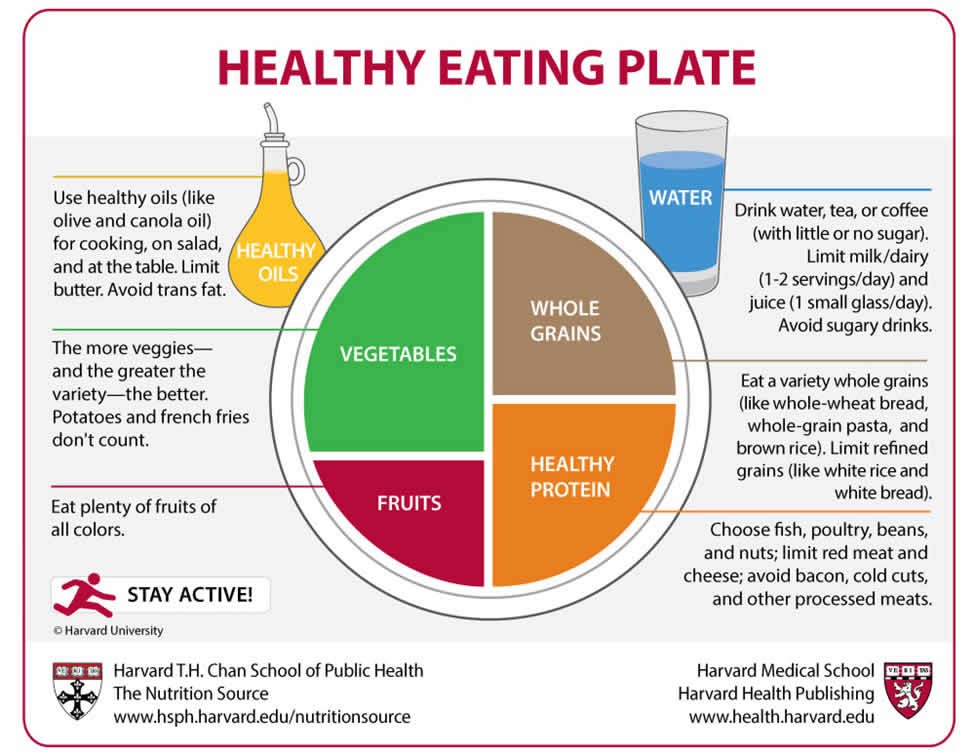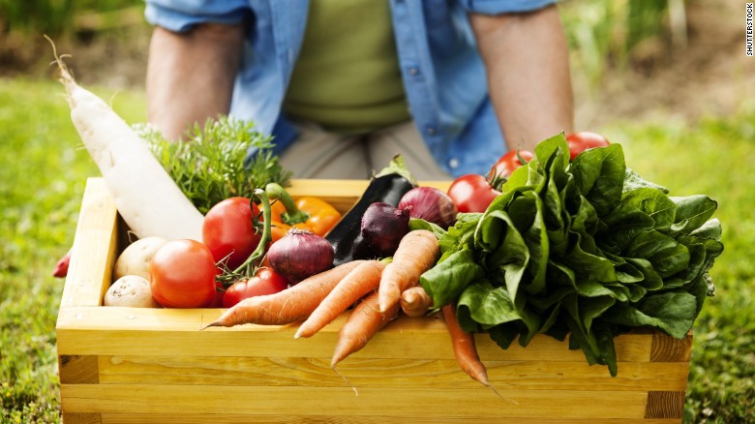The novel coronavirus (Covid-19) which was first detected in Wuhan Hubei Province in China, has wreaked havoc globally with an overwhelming exponential increase in cases all over the world.
This compelled the World Health Organisation (WHO) to declare the disease as a pandemic.
The disease has left the health systems of most countries helpless with a daily increase of newly infected individuals causing the government and stakeholders of countries to put in radical measures such as border closures, partial lockdown among others in an attempt to mitigate and contain the spread of the virus.
Scientists have still not found a cure or vaccine for Covid-19 and this has left Medical Doctors with no option than to give supportive care which includes boosting the body’s immune system to improve outcome among people infected with the disease.
Available research from China suggests young adults and children are able to survive the disease with a high risk among people above 60 years with pre-existing medical conditions like diabetes, hypertension, heart disease among others (WHO, 2020).
There is overwhelming evidence that diet and healthy lifestyle modifications can improve the immune system (Gonza, 2002). It is, therefore, imperative to eat healthy to boost an individual’s immune system whiles adhering to standard precautionary measures to prevent and contain the disease.
What specific foods or ingredients can boost the immune system during this pandemic?
The functioning of the immune system does not thrive on one particular food, supplement or food ingredient. There is currently no evidence that a particular food ingredient or supplement can single-handedly boost the immune system and treat or prevent people from Covid-19 (Academy of Nutrition and Dietetics, 2020).
There are currently several studies ongoing on the possibility of a breakthrough of a particular food ingredient or supplement as a remedy for Covid-19.
Several nutrients are involved in the normal functioning of the immune system, so maintaining healthy eating practices is key during this critical period of the pandemic.
What are the components of healthy eating that can boost the immune system during this Covid-19 pandemic?

The components of healthy eating should consist the right proportions of the essential food groups that the body requires to provide an adequate amount of carbohydrates, proteins, fats, vitamins and minerals to promote a strong immune system to mitigate the effects of Covid-19. This can be in-cooperated into one’s diet by the use of the guide of a healthy eating plate from the Harvard School of Medicine, nutrition source as shown in the figure above.
Guidelines for healthy eating with the help of the healthy eating plate is elaborated below:
Ensure about half of your plate is filled with a variety of fruits and vegetables.
Fruits and vegetables are rich sources of vitamins and minerals which have been proven to boost the immune system Examples of such vitamins and minerals include; vitamin A, C, D, E and zinc which have been demonstrated as immune boosters (Calder & Kew, 2002) and hence should be consumed during this peak of the pandemic. Consume a variety of locally available vegetables such as kontomire, okro, borkor borkor, ayoyo, dandelion, ademe, tomatoes, ginger, garlic, onions, carrots, red peppers among other vegetables.
Eat a variety of fruits such as oranges, pawpaw, mango, apples, bananas, watermelon and other locally available fruits.
It is important to consume more of the vegetable portions than fruits since excess consumption of fruits can lead to weight gain.
The proportion of fruits and vegetable intake represents the green and red portions of the plate as shown in the figure above. The take-home message is to ensure that your consumption of vegetables and fruits exceeds the quantity of other food groups during this period of the pandemic to provide the body with needed vitamins and minerals needed to boost the immune system.
Also, about a quarter of your plate should be filled with whole grain and high fiber carbohydrates.
Whole-grain carbohydrates contain B-vitamins and calories that are essential for immune function. Always choose minimally processed whole grain cereals such as unpolished rice, maize, wheat, sorghum and roots and tubers such as yam, sweet potatoes, plantain, cocoyam and cassava.
A quarter of the plate should also be filled with proteins including dairy products. Adequate protein intake from nuts, seeds, dairy products and animal proteins provide essential amino acids, zinc and probiotics that has been associated with improved immune function (Campus, Science, & Coast, n.d.).
Consume variety of protein sources from fish, beans, nuts and seeds, oily fishes such as salmon, tuna. Limit consumption of red meat and other processed meats. This represents the yellow section of the plate as shown in the figure above.
The bulb on the left hand side of the figure adjacent to the vegetable portion represents fats and oils. Fats and oil contain excess calories and can result in weight gain, high cholesterol and increase the risk of heart diseases. Fats and oils should be limited in our diet as much as possible. Focus on consumption of healthy fats and oils such as canola oil, soybean oil, sunflower oil, saff flower oil and other oils from nuts and seeds. Choose minimal sources of saturated and trans fat from animal fats and fried foods.
Finally, the last portion of the healthy eating plate is to ensure adequate water intake. This is demonstrated on the right hand side of the plate opposite to the whole grains in figure above. Water is important for healthy body functions and also ensures optimal immune function. Adequate water intake helps the body to produce lymph which transports white blood cells and immune cells. Adults will need at least 2-3 litres of water a day (4-6 sachets) or more if there is no medical condition that requires fluid restriction. Limit the intake of sugar sweetened beverages, sports and energy drinks as they have high sugars with few other nutrients. Adequate water intake should be achieved by taking plain or unsweetened beverages.
Immunity and specific nutrients
Even though, the immune system relies on variety of different food groups in the right proportions, certain nutrients are critical in the optimal functioning of the immune system. There is evidence that a diet adequate in vitamin A, C, D, E and Zinc have been proven as immune boosters and should be in-cooperated as part of a healthy balanced meal (Gonza, 2002).
Vitamin A is one of the powerful vitamin that has been shown to help keep your immune system stronger. Vitamin A builds the immune system by helping in the production of antibodies which fight infection in the body. Vitamin A maintains the structure of the skin, respiratory tract and gut which forms a barrier from preventing microbes from entering the body. Rich sources of vitamin A includes carrots, pawpaw, mangoes, watermelon, tomatoes, palm oil, kontomire etc.
Vitamin C rich foods helps build up the immune system. Vitamin C has been shown to increase production of white blood cells. Vitamin C is also protective against common cold due to its immune properties. In this peak of the Covid-19 pandemic having adequate amount of vitamin C from vitamin C rich foods is vital for improved immune function. Vitamin C can be gotten from citrus rich foods like oranges, lime, tangerine, grape fruit, pineapple, lemon.
Vitamin D is a fat soluble vitamin essential to the health and functioning of the immune system. Vitamin D has been shown to enhance pathogen fighting effects of monocytes and macrophages that are important parts of the immune function and decreases inflammation which helps promote immune function (Prietl, Treiber, Pieber, & Amrein, 2013). The greatest source of vitamin D is early morning sunlight. Other food sources of vitamin D is salmon, tuna, mackerel, eggs, milk and other fortified products. Focus on consumption of whole foods containing vitamin D instead of vitamin D supplementation.
Vitamin E is a potent antioxidant and has the ability to improve immune function. Vitamin E plays a role in differentiation of immature T-cells in the thymus (Gonza, 2002). Vitamin E is a fat soluble vitamin with antioxidants properties which helps strengthen the immune system. Vitamin E food sources include; groundnuts, almonds, cashew nuts, sesame seeds, mustard seeds, tiger nuts, sunflower oil etc.
It is important to keep in mind that there is currently no evidence that any specific food or food supplementation can cure or prevent you from Covid-19.
Standard precautionary measures such as handwashing with soap under running water, practising good respiratory hygiene, social distancing and other precautionary measures outlined by WHO together with a well-balanced diet can prevent Covid-19 infection.
The author, RD Maxwell Bisala Konlan (MPH, LD), is Senior Clinical Dietitian, University Of Ghana Hospital.
REFERENCES
Academy of Nutrition and Dietetics (2020). Corona Virus (Covid-19) resource hub, viewed 9th march 2020, <https://www.eatrightpro.org/coronavirus-resources>
Calder, P. C., & Kew, S. (2002). The immune system : a target for functional foods ? https://doi.org/10.1079/BJN2002682
Campus, G. C., Science, E., & Coast, G. (n.d.). Probiotics , immunity and exercise : a review ., 107–126.
Gonza, M. (2002). Functional foods and the immune system : a review, 29–33.
Havard Univerisity (2020). The healthy eating plate, Havard health publications, Viewed 9th march 2020 <https://www.hsph.harvard.edu/nutritionsource/healthy-eating-plate/>
Prietl, B., Treiber, G., Pieber, T. R., & Amrein, K. (2013). Vitamin D and Immune Function, 25, 2502–2521. https://doi.org/10.3390/nu5072502
WHO (2020). Corona Virus, Viewed 10th march 2020 <https://www.who.int/health-topics/coronavirus#tab=tab_1>.
Latest Stories
-
Let’s prioritize research quality in higher education institutions for industrial growth-Prof. Nathaniel Boso
1 hour -
Herman Suede is set to release ‘How Dare You’ on April 24
5 hours -
Heal KATH: Kuapa Kokoo, Association of Garages donate 120k to support project
5 hours -
KNUST signs MOU with Valco Trust Fund, Bekwai Municipal Hospital to build student hostel
5 hours -
The influence Ronaldo has on people, Cadman Yamoah will have same on the next generation – Coach Goodwin
6 hours -
Gender Advocate Emelia Naa Ayeley Aryee Wins prestigious Merck Foundation Awards
7 hours -
South Africa bursary scandal suspects granted bail
8 hours -
Ecobank successfully repays $500m Eurobond due April 18
8 hours -
Re: Doe Adjaho, Torgbui Samlafo IV, call for Unity among Paramountcies in Anlo
8 hours -
Extortion and kidnap – a deadly journey across Mexico into the US
8 hours -
Rihanna says fashion has helped her personal ‘rediscovery’ after having children
8 hours -
Development Bank Ghana targets GH¢1bn funding for commercial banks in 2024
8 hours -
Shatta Movement apologises to Ghana Society of the Physically Disabled after backlash
9 hours -
Sammy Gyamfi writes: Tema-Mpakadan Railway Project; A railway line to nowhere
9 hours -
Bright Simons: Is the World Bank saving or harming Ghana?
10 hours

